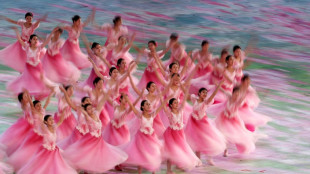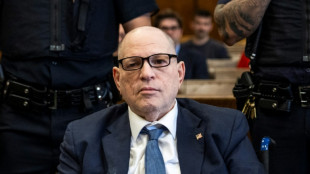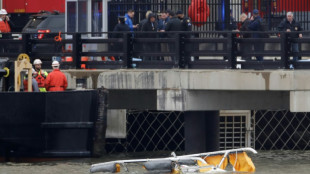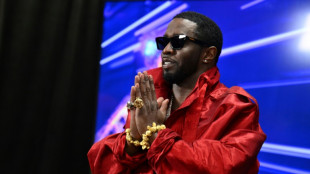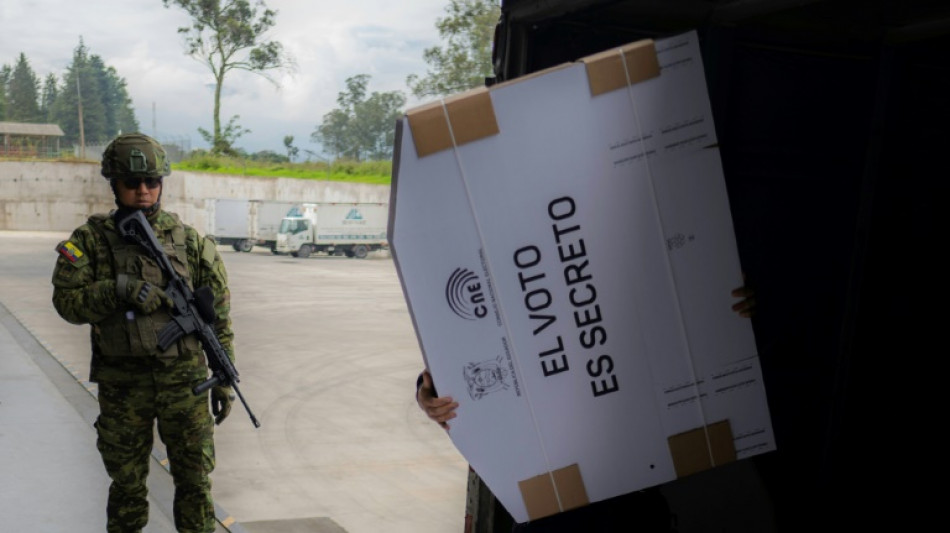
Ecuador votes in razor-tight presidential runoff

Ecuadorans are voting Sunday in a too-close-to-call presidential election that pits incumbent Daniel Noboa against a charismatic leftist challenger, after a campaign plagued by drug-related violence.
The 37-year-old president narrowly won February's first round, but not by enough to avoid another duel against a resurgent Luisa Gonzalez, who is bidding to become Ecuador's first woman president.
The election has been dominated by anger over the lackluster economy and cartel violence that has transformed Ecuador from one of the safest countries in Latin America into the most deadly.
In the volcano-ringed capital Quito, early voters wrapped up against the Andean morning chill and flocked to the polling stations.
In total about 13.7 million Ecuadorans are obliged to vote.
"I think Ecuador is divided, but I think we all understand we are in a situation where we have to unite, whoever is leading the government" said 21-year-old architecture student Camila Medina.
On the eve of the ballot, Noboa declared a 60-day state of emergency in the capital and several provinces, underscoring the tense state of affairs.
This once-peaceful nation averaged a killing every hour at the start of the year, as cartels vied for control over cocaine routes that pass through Ecuador's ports.
Noboa, the guitar-strumming son of a billionaire banana magnate, has staked his political fortunes on "iron fist" security policies designed to snuff out the gangs.
He has deployed the military to the streets, captured drug capos and invited the United States to send special forces.
By contrast, 47-year-old single mother Gonzalez has pitched herself as a political everywoman, born to a humble family and laser-focused on improving the lot of poor Ecuadorans.
She may have a growing constituency. Rampant bloodshed has spooked investors and tourists alike, fueling economic malaise and swelling the ranks of Ecuador's poor to 28 percent of the population.
- 'Born with a problem' -
Ecuador faces two very different paths depending on which candidate wins.
A Noboa win would likely see him double down on hardline security policies and further nurture a budding bromance with US President Donald Trump.
If Gonzalez wins, it would signal a sharp shift to the left and a likely cooling of Ecuador's relations with the United States.
Gonzalez is closely allied with ex-president Rafael Correa, who delighted in lobbing barbs at Washington during his decade in office.
He now lives in exile in Belgium, avoiding a corruption conviction he claims is politically motivated. He remains a deeply polarizing figure in his homeland.
"We are going to make history for Ecuador!" Gonzalez told supporters while voting in her hometown near the Pacific coast. "We are ready to defend democracy."
In February's first round of voting less than a percentage point, or 17,000 votes, separated Noboa and Gonzalez.
Both candidates on Thursday held final campaign events in Guayaquil, the country's largest city, economic capital and the epicenter of drug violence.
Gonzalez made a late play for women voters, proposing low-interest loans of up to $40,000 for single mothers.
During Noboa's time in power, she said, "violence, poverty and unemployment has hit us women hardest."
Noboa presented himself as an outsider and the candidate of change.
"The country does not deserve to be mistreated by the same old politicians," he said, targeting his rival's ties with former president Correa.
Some analysts fear a tight result could spark claims of fraud and lead to a government with a weak mandate.
"If the difference is very small, the government will be born with a problem: It has almost half the country against it, and that weighs heavily, making it more difficult to govern," said Simon Pachano of the social sciences institute FLACSO.
M.Michel--PS

 London
London

 Manchester
Manchester
 Glasgow
Glasgow
 Dublin
Dublin
 Belfast
Belfast
 Washington
Washington
 Denver
Denver
 Atlanta
Atlanta
 Dallas
Dallas
 Houston Texas
Houston Texas
 New Orleans
New Orleans
 El Paso
El Paso
 Phoenix
Phoenix
 Los Angeles
Los Angeles
